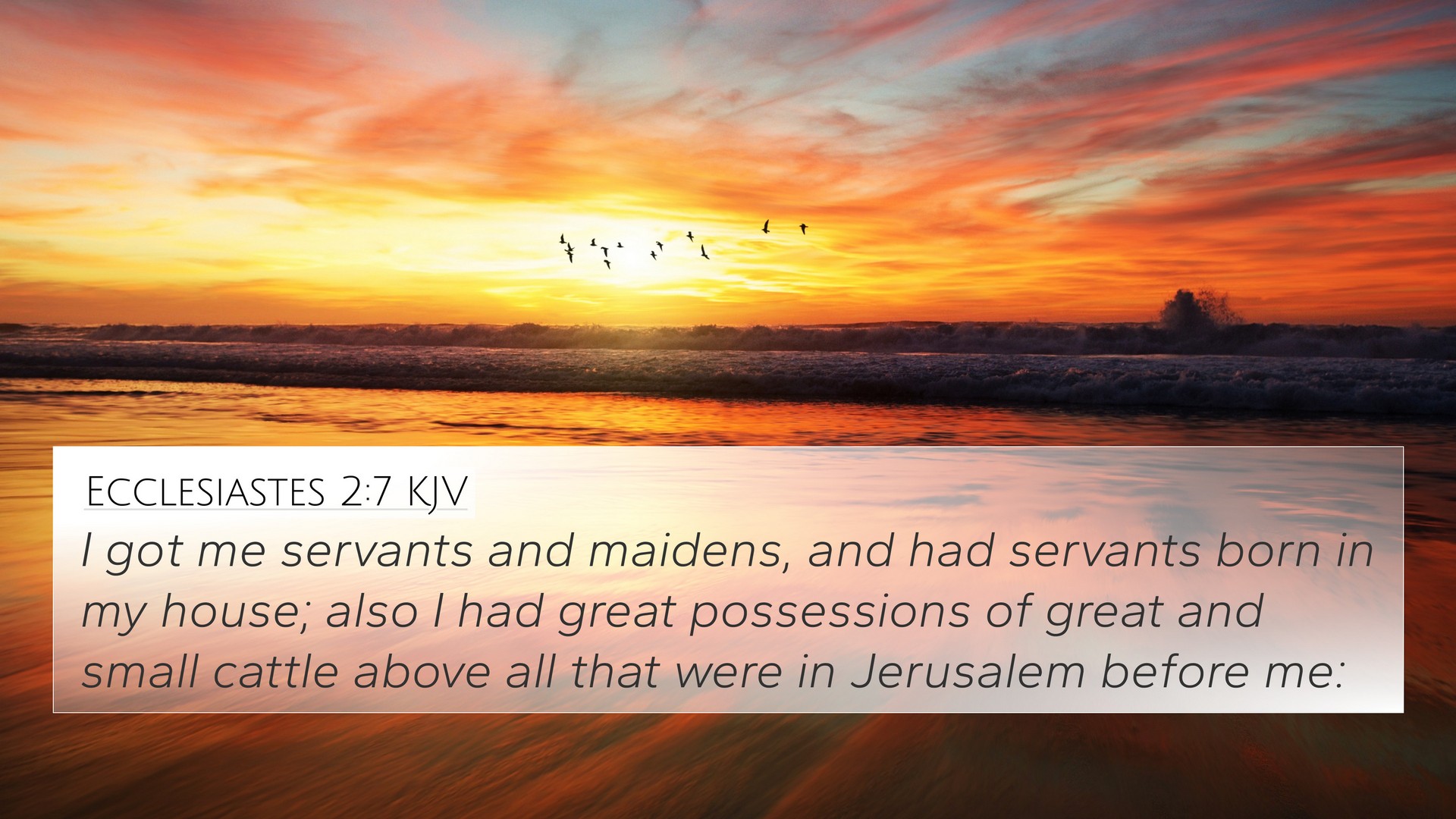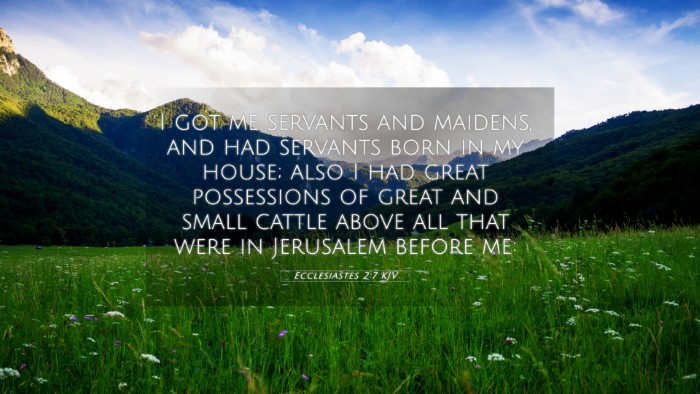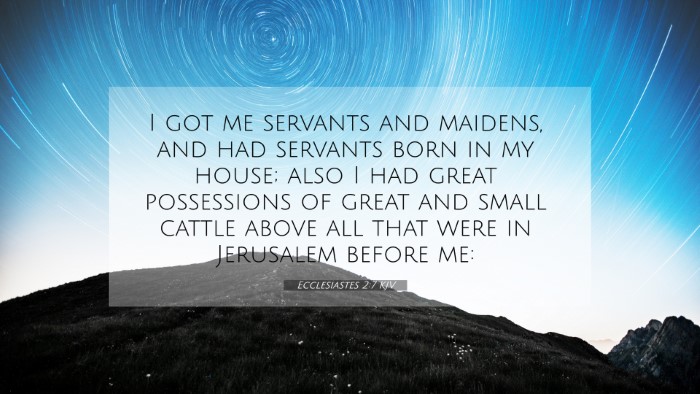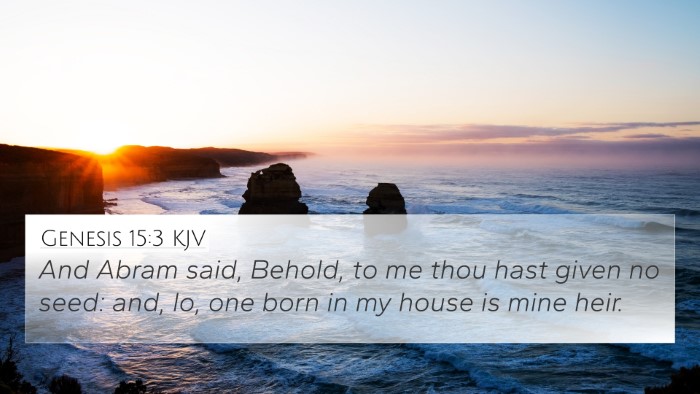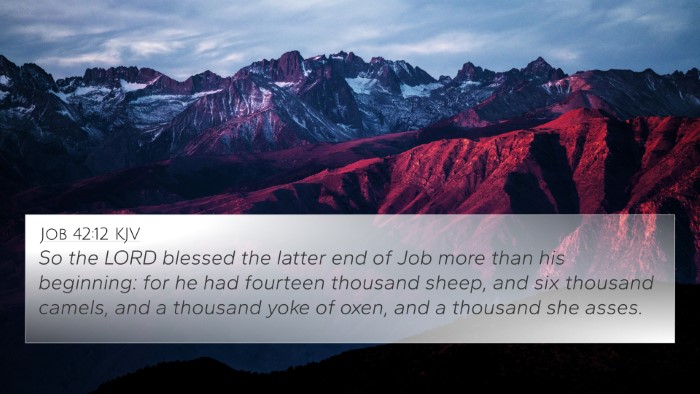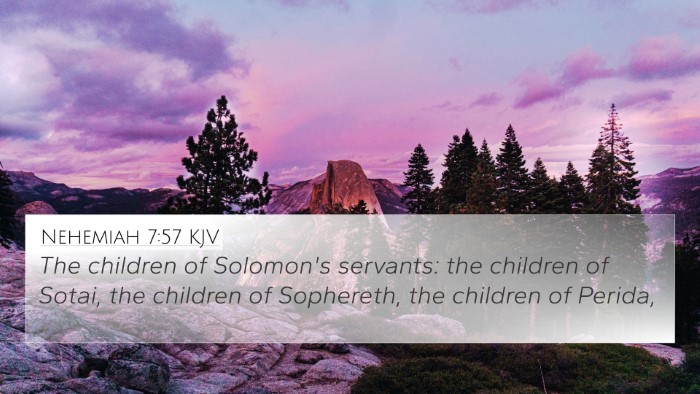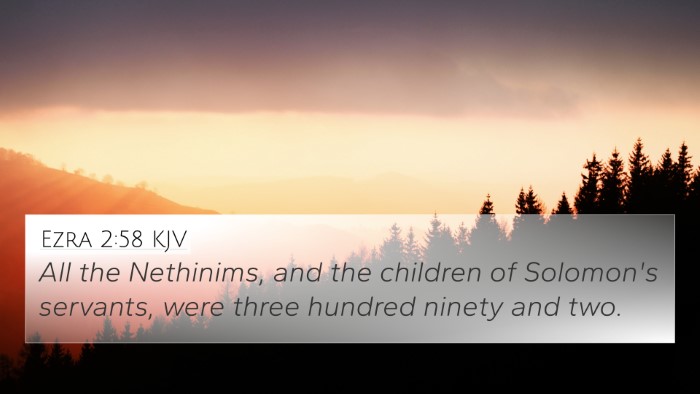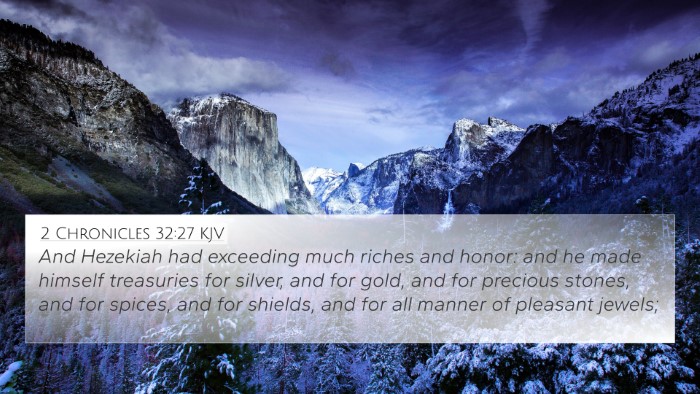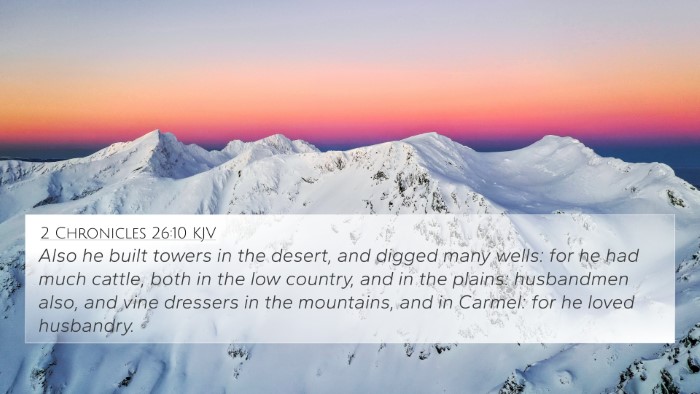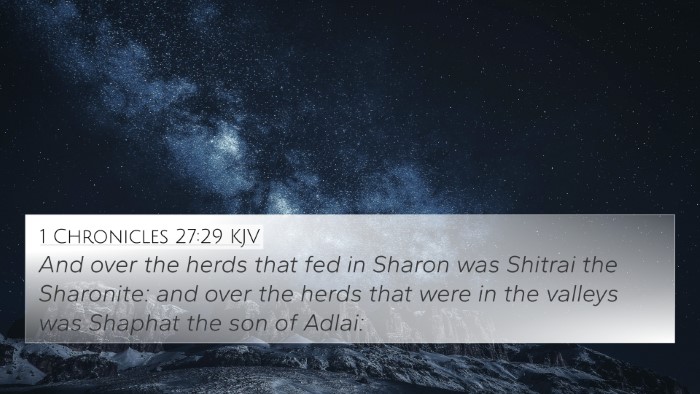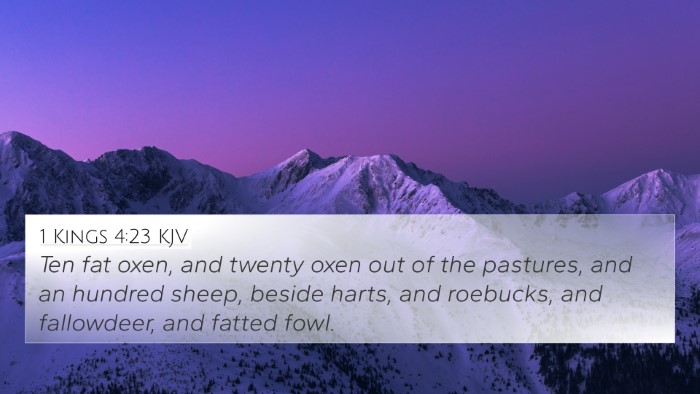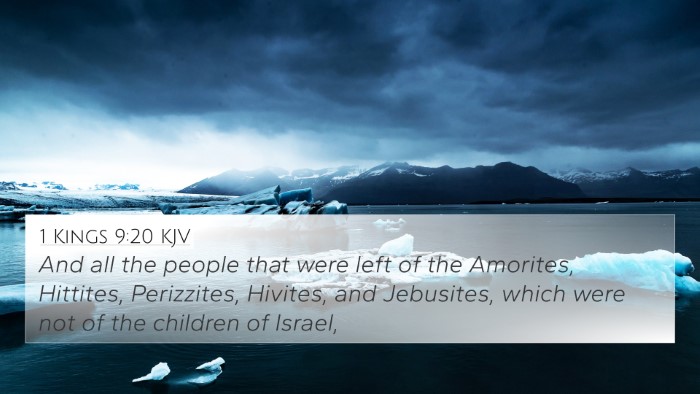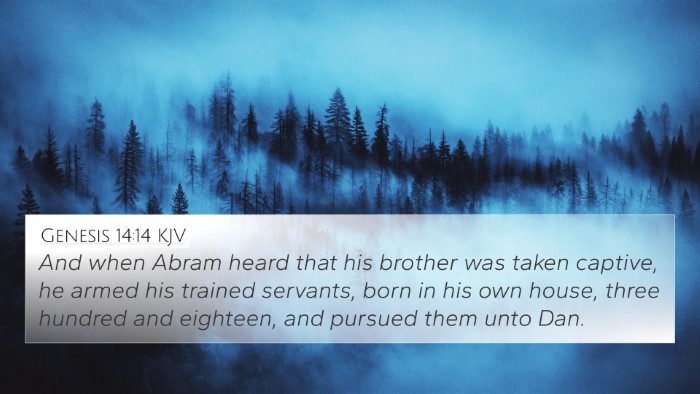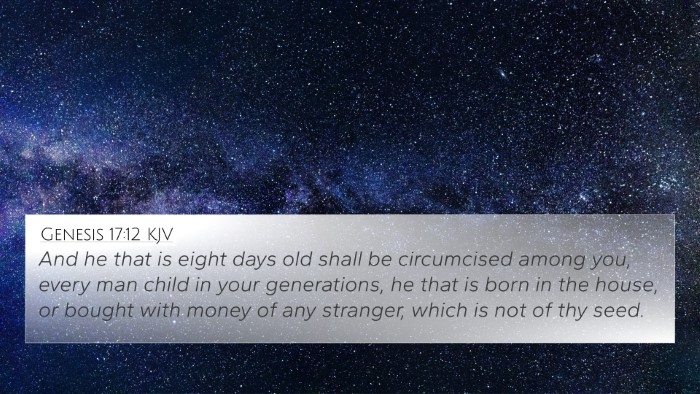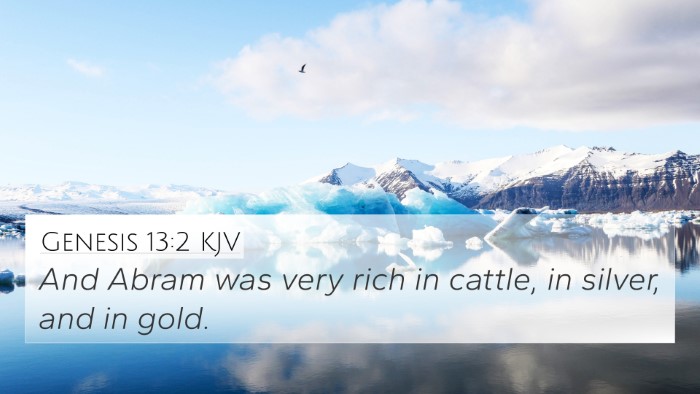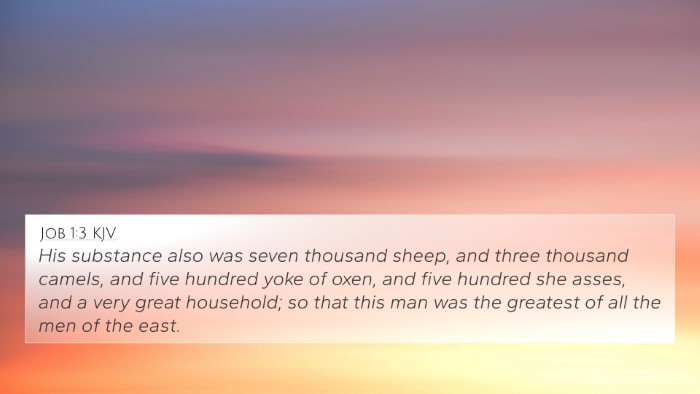Ecclesiastes 2:7 Meaning and Interpretation
Verse Reference: Ecclesiastes 2:7 - "I bought slaves and female slaves and had homeborn slaves. I also owned flocks and herds, more than any who had been before me in Jerusalem."
Summary of Ecclesiastes 2:7
This verse is part of a larger narrative where the Preacher (traditionally understood as King Solomon) reflects on his pursuit of meaning in life through various avenues, including wealth, possessions, and experiences. In Ecclesiastes 2:7, he lists the significant acquisitions of wealth and power he has amassed, illustrating his success and status beyond that of others in Jerusalem.
Commentary Insights
In reviewing public domain commentaries from Matthew Henry, Albert Barnes, and Adam Clarke, we find insightful perspectives on this verse:
- Matthew Henry: Henry emphasizes the transitory nature of earthly power and possessions. He notes that despite all amassed wealth, the ultimate question remains whether these acquisitions bring true fulfillment or merely serve as distractions from life's deeper purpose. The Preacher's inventory of his possessions highlights the vanity of human pursuits.
- Albert Barnes: Barnes interprets the mention of slaves and livestock as symbols of the great wealth and resources available to Solomon. He points out that such possessions reflect not only the materialism of the age but also the responsibilities that come with wealth. Solomon grapples with the existential meaning of his wealth, questioning if greater possessions lead to greater happiness.
- Adam Clarke: Clarke delves into the implications of social status conveyed through ownership of slaves and livestock. He underscores the cultural context of these possessions in ancient Israel, which were often tied to status and wealth. Yet, he emphasizes that despite these societal markers, the Preacher realizes the ultimate futility of such pursuits in finding lasting joy and satisfaction.
Connections to Other Bible Verses
Ecclesiastes 2:7 can be linked to several other scriptures that explore similar themes of wealth, fulfillment, and the futility of earthly pursuits. Here are some notable cross-references:
- Proverbs 11:4: "Wealth is worthless in the day of wrath, but righteousness delivers from death." - This illustrates the ultimate futility of wealth.
- 1 Timothy 6:7: "For we brought nothing into the world, and we can take nothing out of it." - This echoes the transitory nature of material possessions.
- Ecclesiastes 5:10: "Whoever loves money never has enough; whoever loves wealth is never satisfied with their income." - This further explores the pursuit of wealth leading to dissatisfaction.
- Luke 12:15: "Watch out! Be on your guard against all kinds of greed; life does not consist in an abundance of possessions." - A warning about materialism and greed.
- Matthew 16:26: "What good will it be for someone to gain the whole world, yet forfeit their soul?" - The moral and spiritual implications of wealth are highlighted here.
- James 5:1: "Now listen, you rich people, weep and wail because of the misery that is coming on you." - A somber reflection on the consequences of hoarding wealth.
- Ecclesiastes 1:14: "I have seen all the things that are done under the sun; all of them are meaningless, a chasing after the wind." - This sets the tone for the broader themes in Ecclesiastes.
Thematic Connections
The verse touches on several overarching themes prevalent in scriptural discourse:
- The Futility of Materialism: The consistent message throughout Ecclesiastes explores how material possessions do not provide true happiness.
- The Nature of True Fulfillment: The quest for meaning remains central, challenging readers to seek fulfillment beyond material wealth.
- The Responsibility of Wealth: Wealth comes with responsibilities and does not guarantee contentment or peace.
Tools for Bible Cross-Referencing
To further explore and analyze connections between Bible verses, consider utilizing various resources:
- Bible Concordance: A tool for locating specific words, themes, and passages.
- Bible Cross-Reference Guide: Provides organized lists of verses related to specific themes or topics.
- Cross-Reference Bible Study: Methods designed for in-depth comparative analysis between verses.
- Comprehensive Bible Cross-Reference Materials: Rich resources such as books or software that facilitate extensive study.
Conclusion
In Ecclesiastes 2:7, the Preacher reflects on his vast resources, pondering the true meaning behind them. The insights from various commentaries remind us to evaluate our pursuits critically, emphasizing themes of fulfillment, responsibility, and the limitations of wealth. Through cross-referencing with other Bible verses, we can gain a holistic understanding of these themes, providing deeper insight into the journey of finding meaning in life.
